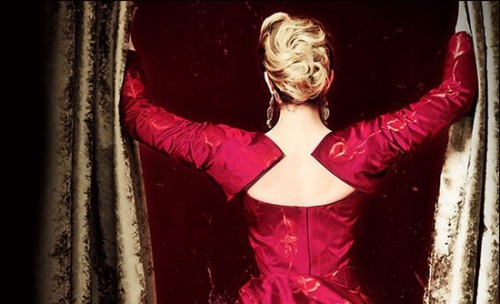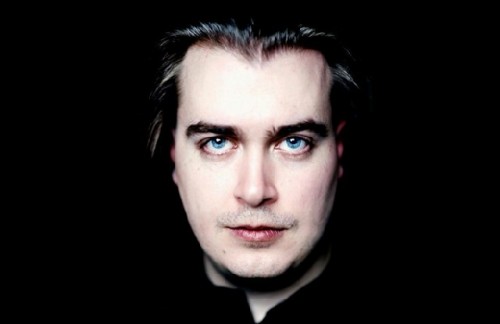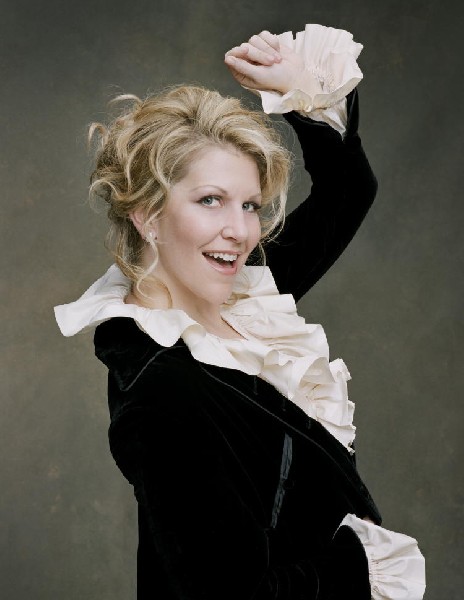Joyce DiDonato Captivates Carnegie Hall
Il Complesso Barocco Accompanies Our Premier Mezzo
By: Susan Hall - Nov 20, 2012
Joyce DiDonato, Mezzo-Soprano
Il Complesso Barocco
Dmitry Sinkovsky, Director and Violin
Program:
CESTI "Intorno all'idol mio" from Oronotea
D. SCARLATTI Sinfonía from Tolomeo et Alessandro
MONTEVERDI "Disprezzata regina" from L'incoronazione di Poppea
GIACOMELLI "Sposa son disprezzata" from Merope
VIVALDI Concerto in D Minor for Violin, Strings, and Continuo, RV 242
ORLANDINI "Da torbida procella" from Berenice
J.A. HASSE "Morte, col fiero aspetto" from Antonio e Cleopatra
HANDEL "Piangerò la sorté mia" from Giulio Cesare
HANDEL Passacaglia, Act II from Radamisto
PORTA "Madre diletta" from Ifigenia in Aulide
D. SCARLATTI Sinfonía in C Major
HANDEL "Brilla nell' alma un non inteso ancor" from Alesandro
Encores:
KEISER "Lasciami piangere" from Fredegunda
ORLANDINI "Col versar barbaro il sangue" from Berenice
HANDEL "Brilla nell'alma un non inteso ancor" from Alessandro
Carnegie Hall
November 18, 2012
Joyce DiDonato returned to Carnegie Hall to perform scenes and arias of Drama Queens from Cleopatra to Poppea. Sweeping onstage in smashing power red silk, her bustle suggesting an important avoir du pois. DiDonato, like current pop star Beyonce, appears to have attended every detail of her performance. She then focuses on her songs on stage. She is both imposing in her talent and her demeanor. Warm, inviting the $10 student rush attendees in the rafters to enjoy.
DiDonato's alabaster skin and her hair formed into a crown of curls framed impeccably moving moment after moment as her songs flowed out, pure and rich. Last year she breathlessly praised Carnegie's superb acoustics.
Swept up in Queen after Queen, the listener wonders at the DiDonato instrument, surely among the most glorious on display today. You can observe the subtly pressed delivery of the breath from the pelvis, the preferred place of origin, but the one singers have the most difficulty accessing. For DiDonato, breath seems effortless. But her achievement is not to be underestimated, because surely the sheer beauty of her voice originates with the breath. Her control combined with passion are well served by its seamless stream.
DiDonato does not shape words with her lips, but instead forms them in the mouth's interior. The sounds of the words emerge clearly, particularly the vowels, but the words are very much in the service of tone and emotion. How does she achieve such a relaxed impression with all the work that goes into such a delivery?
Accompanied by a Il Compresso Barocco, a young group from Russia, led by the violinist Dmitry Sinkovsky, the violin and supporting musicians played together and accompanied DiDonato like a chamber group, talking, supporting, underlining.
Sinkovsky is a superb violinist. He danced and dipped as he performed. To conduct, he mouthed the singer's words. The violinists also stood, a particularly inviting performance posture.
For the second part of the program, DiDonato unwrapped her dress. Where she had grasped a long matching red scarf, she now had her arms wrapped. The dress split apart over hip hoops, so that she spread queenly-wide.
DiDonato writes of the goals she so beautifully achieved in personal notes in the program. "Why do we adore these queens of the drama? The answer for me is at the heart of why we love opera. We yearn to open hidden doors into the richest, most complex, utterly human and profoundly moving emotions that we not be able to access left to our own devices. The crazy plots and extreme circumstances...give us permission to unleash our often too-idle imagination. ...we will find welcome release in Cleopatra’s broken, hunted tears...allowed to weep at Rosanne’s unbridled joy or perhaps learn to love a bit more purely through Orontea's heartfelt plea to her sleeping lover." No one could say it better.
The unusual combination of vocal beauty, dramatic presentation and glorious tones distinguishes DiDonato, who is at the same time warmly appreciative of her audience. Worth catching anywhere at any time, but particularly at Carnegie Hall, which offers such a wonderful sound box for musicians' talent.




